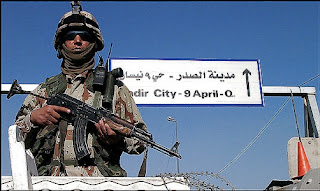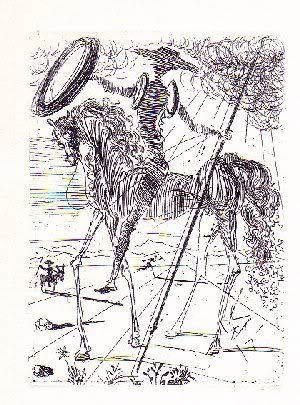Iraq Four Years Survey

My friend Treasure of Baghdad kindly included me in a survey of Iraq and U.S. bloggers concerning the invasion of Iraq by the United States four years ago. Following are my responses. I encourage anyone to take part and answer any and all of the questions.
1) What was your opinion when the US decided to invade Iraq in 2003?
I was not in favor of the invasion to begin with, but I must admit to not being against the invasion. I was of the opinion that the decision has been made, we are going to war so you may as well pray for success and hopefully it will be over fast and to everyone’s benefit, Iraq and the United States, the latter being my country.
I also have memories of heated discussions with people concerning the invasion, but most people I know simply hate President Bush and cannot have an intelligent argument unless it has to do with America bashing or Bush bashing. There is no discussing specifics. This I have no time for and as a result act in a very defensive, negative bullying style that makes me sound conservative and a supporter of the war and the President, of which I support neither.
I HONESTLY believed that my country would not go invade another country, topple its government and install another without a well thought out plan. I mean, we have been dealing with this country since the first Gulf War. Surely we know the lay of the land, the major players. Why didn’t I notice that there was pretty much one voice for Iraq outside Iraq, and it was this guy Ahmed Chalabi. How could I have missed that he had not been in Iraq in, say, 20 years or more? And he speaks for the Iraq people and knows what it will be like when we go in? But then I also believed Mohamed El-Baradai and Hans Blix that the case for WMD was shaky. I guess I tried to believe it all and none at the same time.
I spent too much time on the fence, and my balls got busted.
Before the Gulf War of 1991, the U.S. Congress at least had an honest debate about going to war. At that point we were only 16 years removed from the ignominious retreat from Saigon. I was in college afraid of being drafted and can remember vividly thinking “I don’t want to go bleed all over the desert in some far away land so we can have cheaper oil and to put a KING, a KING mind you back on his throne. Didn’t we fight a war to put an end to that type of tyrannical rule?
The strangest part is that back then in 91 it seemed more real, as if it were affecting me personally. In 2002/03 they tried selling the Iraq 9-11 connection as a big reason and I didn’t buy it, yet still was silent. Was I asleep? Am I that stupid? My first reaction is yes, I was. But I also get annoyed at people who were so smart; they knew exactly what was going to happen.
I am ashamed of myself. I never considered just exactly what it means to unleash the Dogs War.
2) It has been four years since the invasion. Has your opinion changed since then? Why?
Yes. My opinion has changed with respect to the United States and its ability to effect change in the world, to help out other countries. How can we help those poor people in the Sudan when the full weight of the U.S. military cannot even keep the power on in Baghdad?
I can remember having a conversation about the war and its aftermath. I remember saying they will bring every able bodied Military Policeman, as well as International Police, the kind that are trained go in to post conflict areas and help keep the peace. How can I support people who didn’t even have that sense of forethought, when a slacking kid like me did? How can I support and have confidence in the very same people that caused this out of control situation?
3) Whom do you blame for the insecurity in Iraq? Why?
I put the blame squarely on the United States. The day the Saddam statue fell in Firdos Square, the United States under international treaties the U.S. is signature to, became the government of Iraq and from that day was sole entity responsible for the safety and security of the people of Iraq.
Therefore, if there were peace and stability the U.S. would have been responsible for the success and all the credit due accordingly.
Unfortunately the opposite conditions exist in Iraq, where death and murder and sorrow accompany every muezzin’s call to prayer.
4) What do you think should be done to quell the violence there?
I do not personally know any people from Iraq. I am in contact with one blogger from Iraq who currently is studying in the United States and I personally know only one person that has been to Iraq and he is an American reporter and therefore I am reluctant to make recommendations on what should be done in Iraq.
Until the people have confidence in the government to provide security the violence will continue. And what level of security would be acceptable to the Iraqi’s I have no idea. I know if it were my country I would want 0 car bombs and no drill hole corpses any more. I would want to be able to send my children to school and know that the cops on the street will make sure the street is safe enough for them to walk alone without fear of a stray ball bearing severing her artery because some young man feels so strongly in his position to strap a vest of plastic explosives lined with ball bearings and set it off at the entrance to a university. Why should anyone expect any less than that?
The people must also feel that their government of Iraqi’s is in control of their country, not a foreign ignorant occupier.
5) Do you think the US should withdraw its forces from Iraq now or not? Why?
No, I do not think the U.S. should withdraw its combat forces now. Having invaded and occupied Iraq, creating chaos and death on an unimaginable scale only to leave these conditions behind while not at least trying to help make it better, albeit late, the U.S. has an obligation to stay.
Again, this is difficult for me to make recommendations as I am so far removed from the situation, and we have the President to thank for this as he never asked anything of the American people. Wait, he asked loyal republicans who never had a passport to go to Iraq and create zip codes. ZIP CODES!
But I digress. Is the U.S. presence in Iraq only making it worse and if we simply left all the drill-holed bodies would stop showing up in the morgue? If we left would that mean the Sunni woman could go look for her dead husband at the Shiite morgue without fear of being raped? Will the Shiite pilgrims mourning Imam Hussain ibn Ali feel safe to walk with piety to Karbala without fear of being burned beyond recognition?
6) Do you think the war was worth it? Why?
No. All for one man? That guy in the rat hole who needed his teeth brushed? That guy? All those dead people for THAT GUY? An orgy of death and destruction on a scale rarely seen. As an American I am complicit and feel ashamed at what we did to the peace loving people of Iraq.
.jpg)

